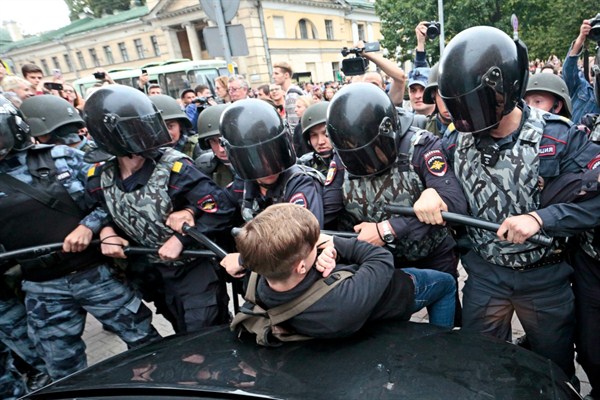In the wake of Russia’s aggression against Ukraine in 2014, the United States embarked on a two-pronged policy of sanctions and isolation to punish Moscow. At the time, some Russian analysts predicted it would be impossible to isolate Russia, and that those seeking to do so would only isolate themselves. That has proven to be right in more respects than those analysts and the Kremlin may have realized.
While Russia has suffered significant economic harm from the U.S.-led international sanctions regime—a collapse in the ruble, near stagnant GDP growth, exclusion from international credit markets—it has nonetheless expanded its exports, deepened cooperation with other energy-producing states, and turned to China, the Gulf Arab states and other lenders to finance ambitious infrastructure projects at home. In this sense, Russia is hardly isolated from the wider world, even as the Kremlin cultivates a “fortress Russia” mentality to prop up its own domestic political support.
Yet the benefits the Kremlin may have expected from Russia’s splendid isolation have been slow in coming, and in some cases have already evaporated. Despite weathering the onslaught of U.S. sanctions and diplomatic pressure, President Vladimir Putin now faces some of the severest challenges to his hold on power within Russia, as ordinary Russians are demanding the kind of social, economic and political conditions that they know exist outside the country.

